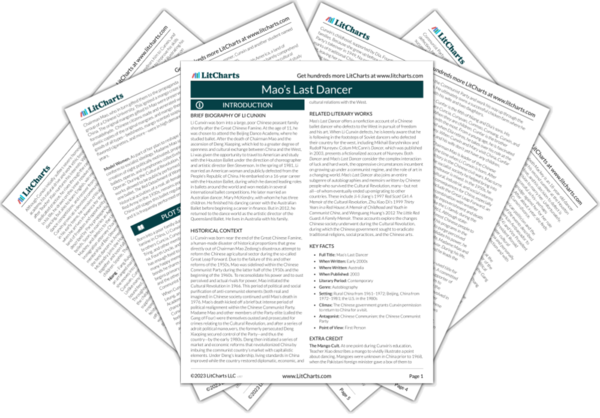Previous
Chapter 1: Home
|
Previous
Chapter 1: Home
|
Mao’s Last Dancer: Chapter 2: My Niang and Dia Summary & Analysis |
Next
Chapter 3: A Commune Childhood
|


Upgrade to unlock the analysis and theme tracking for all of Mao’s Last DancerMao’s Last Dancer!
Get LitCharts A+